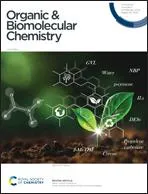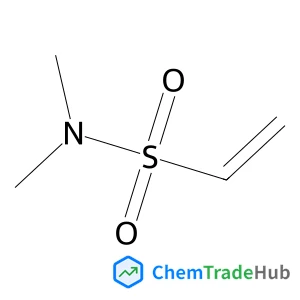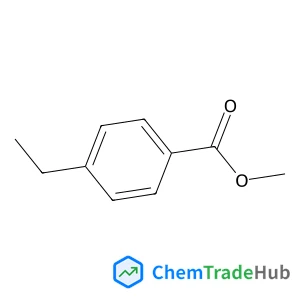Dess–Martin periodinane oxidative rearrangement for preparation of α-keto thioesters
Literature Information
Randy Sanichar, Ciaran Carroll, Ryan Kimmis, Bela Reiz, John C. Vederas
A Dess–Martin Periodinane (DMP) mediated oxidative rearrangement reaction was uncovered. The reaction proceeds via oxidation of a β-hydroxy thioester to a β-keto thioester, followed by an α-hydroxylation and then further oxidation to form a vicinal thioester tricarbonyl. This product then rearranges, extruding CO2, to form an α-keto product. The mechanism of the rearrangement was elucidated using 13C labelling and analysis of the intermediates as well as the products of the reaction. This efficient process allows for easy preparation of α-keto thioesters which are potential intermediates in the synthesis of pharmaceutically important heterocyclic scaffolds such as quinoxalinones.
Related Literature
IF 6.843
Sensitive and specific detection of tumour cells based on a multivalent DNA nanocreeper and a multiplexed fluorescence supersandwichIF 6.222
Back coverIF 6.222
Interfacial engineering of a polymer–MOF composite by in situ vitrificationIF 6.222
Catalogue of self-targeting nano-medical inventions to accelerate clinical trialsIF 6.843
Stabilizing synthetic DNA for long-term data storage with earth alkaline saltsIF 6.222
An improved fluorescent protein-based expression reporter system that utilizes bioluminescence resonance energy transfer and peptide-assisted complementationIF 6.222
High-performance tungsten carbide electrocatalysts for the hydrogen evolution reactionIF 6.367
Novel aqueous amine looping approach for the direct capture, conversion and storage of CO2 to produce magnesium carbonateIF 6.367
Front coverIF 6.843
Source Journal
Organic & Biomolecular Chemistry

Organic & Biomolecular Chemistry (OBC) publishes original and high impact research and reviews in organic chemistry. We welcome research that shows new or significantly improved protocols or methodologies in total synthesis, synthetic methodology or physical and theoretical organic chemistry as well as research that shows a significant advance in the organic chemistry or molecular design aspects of chemical biology, catalysis, supramolecular and macromolecular chemistry, theoretical chemistry, mechanism-oriented physical organic chemistry, medicinal chemistry or natural products. Articles published in the journal should report new work which makes a highly-significant impact in the field. Routine and incremental work is generally not suitable for publication in the journal. More details about key areas of our scope are below. In all cases authors should include in their article clear rationale for why their research has been carried out.
Recommended Compounds
Recommended Suppliers
 ARTES Valve & Service GmbH
ARTES Valve & Service GmbH QUANCOM Informationssysteme GmbH
QUANCOM Informationssysteme GmbH Hobré Instruments bv
Hobré Instruments bv Quzhou Bangcheng Chemical Co., Ltd.
Quzhou Bangcheng Chemical Co., Ltd. Berghof GmbH
Berghof GmbH Shenzhen Zhongshenghe Real Estate Co., Ltd.
Shenzhen Zhongshenghe Real Estate Co., Ltd. Arch Química, S.A. de C.V.
Arch Química, S.A. de C.V. Wuxi Kailide Industrial Co., Ltd.
Wuxi Kailide Industrial Co., Ltd. Tianjin Zhuolon Imports and Exports Trade Co., Ltd.
Tianjin Zhuolon Imports and Exports Trade Co., Ltd. Alkem de México, S.A. de C.V.
Alkem de México, S.A. de C.V.











![1337532-29-2 - 1-(5-(4-amino-7-methyl-7H-pyrrolo[2,3-d]pyrimidin-5-yl)-4-fluoroindolin-1-yl)-2-(6-methylpyridin-2-yl)ethanone 1337532-29-2 - 1-(5-(4-amino-7-methyl-7H-pyrrolo[2,3-d]pyrimidin-5-yl)-4-fluoroindolin-1-yl)-2-(6-methylpyridin-2-yl)ethanone](/structs/133/1337532-29-2-edb6.webp)


